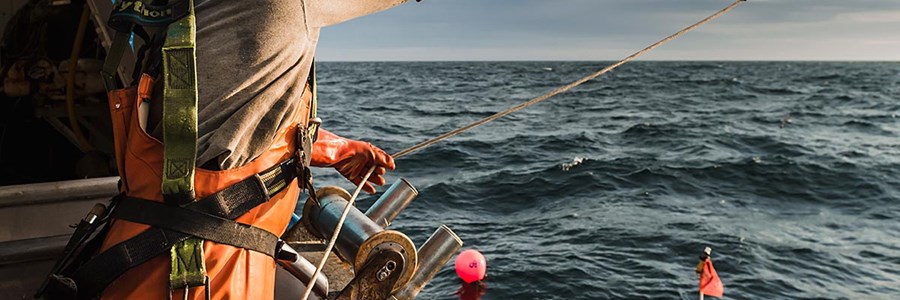La industria acoge con satisfacción el llamamiento del Gobierno francés para políticas de pesca más socialmente sostenibles

Ayer, 28 de febrero de 2017, durante un seminario organizado por la Federación Europea de Trabajadores del Transporte (ETF) en el marco de la Semana Europea de la Navegación, Thierry Coquil, Director de Asuntos Marítimos de la Administración francesa, entregó un mensaje de Alain Vidalies, Secretario de Estado francés para el Transporte, que también incluyó preocupaciones sobre la pesca.
ETF and Europêche, social partners in the Sectoral Social Dialogue Committee for Fisheries (SSDC-F), warmly welcomed the approach taken by Mr Vidalies and his team.
‘We have been very pleased to hear the words of Mr Vidalies today’, declared Flemming Smidt, vice-chair of the SSDC-F and workers spokesperson. ‘His speech echoed some of the elements that we, as social partners in the fisheries sector, are advocating already for many years.
First and foremost, the full inclusion of the fisheries sector in the scope of the Integrated Maritime Policy (IMP). The IMP is not living up to the plans that had been made when it was first launched. This is especially true for fisheries. The European Commission needs to rethink the way the IMP is being implemented.
We totally agree with what Mr Vidalies declared today when he said that ‘the challenges to the maritime sectors are not only economic, environmental and related to security, but also social’.
Ment van der Zwan, Europêche’s spokesperson in the SSDC-F added ‘France is one of the few EU countries that has ratified the ILO Work in Fishing Convention (C188) and we are aware that it is also looking very closely at the ratification of the IMO STCW-F Convention.
These are two of the key tools we have available to make fisheries, in the EU and globally, more socially sustainable.
We support the French holistic and integrative approach, which aims at fully transposing the ILO C188 into community law in a way that it applies to all fishermen regardless of their employment status: both employees and self-employed.
We encourage France to take the lead in advocating this approach in the EU. We find it discriminating that EU fishermen do not benefit from the standards and values provided by the STCW-F, since a similar instrument applicable to the merchant fleet, the STCW, has been implemented into EU law.’
After having negotiated the transposition of C188 into EU law, ETF and Europêche are now promoting the ratification of the Convention by EU member states as well as to raise awareness on what is yet to be done before the Convention enters into force later this year.
At the same time, social partners are urging the European Commission to take the initiative to transpose the STCW-F Convention into EU law.
ENDS
For further information, please contact:
- Livia SPERA, ETF Political Secretary (+32.470.93.05.89 or spera@etf-europe.org)
- Daniel VOCES, Europêche Acting Managing Director (+32.2.230.48.48 or voces@europeche.org)
* The European Transport Workers’ Federation (ETF) represents more than 3.5 million transport workers from more than 230 transport unions and 41 European countries, in the following sectors: railways, road transport and logistics, maritime transport, inland waterways, civil aviation, ports & docks, tourism and fisheries.
Europêche represents the catching sector in Europe. In the context of the Social Dialogue, the Association comprises 15 national organisations of fishing enterprises from Iceland and the following 10 EU Member States: DE, DK, ES, FR, IT, MT, NL, LV, PL and UK.
Sources: Europeche
Attachments:
Tags: diálogo social, pesca, Normas Sociales, STCW-F, C188, OIT, Trabajo en Pesca, Convención, SSDC-F, IMP, seguridad en el mar